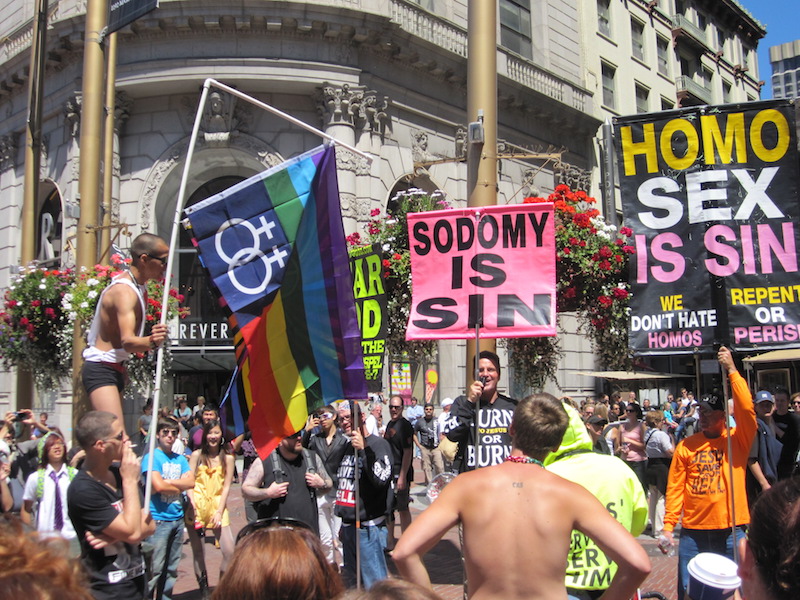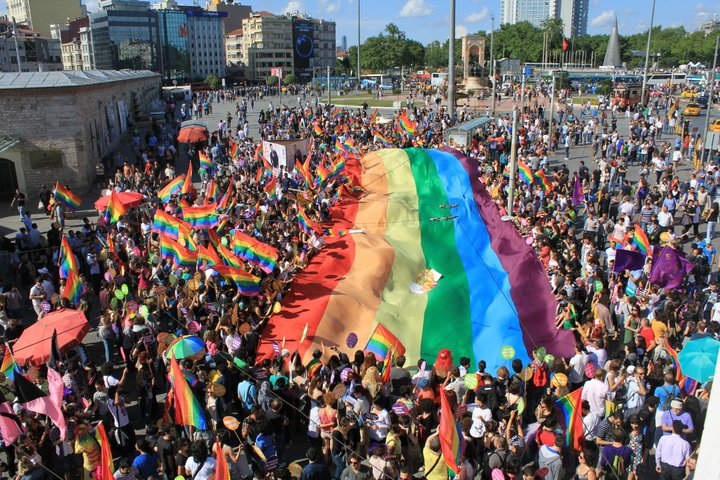Our country has seen some massive news stories break over the last couple of weeks.
On June 17th, 2015 a man walked into Emanuel African Methodist Church in downtown Charleston and murdered nine people. Multiple pictures of Dylan Roof, the man behind the trigger, have now surfaced that show him wearing icons of white supremacist groups. Of these pictures, we can see him sporting the flags of former Rhodesia as well as the apartheid-era South Africa. Another image also surfaced showing him holding his handgun as well as a Confederate Flag.
This terrible tragedy was another stark reminder to our country that the days of racial issues are far from being a thing of the past. Nine people are dead because of the horrible and terribly racist views of one man. One of the outcomes of this incident has been a debate over the place of the Confederate Flag in Southern states. I show my ignorance in that I was shocked to learn this flag was still flown over the capitol buildings of multiple states in the South. Comedian John Stewart accurately captured my response to this reality when he said, “In South Carolina, the roads that black people drive on are named for Confederate generals, who fought to keep black people from driving people on that road. That’s insanity. That’s racial wallpaper. You can’t allow that…The Confederate Flag flies over South Carolina and the roads are named for Confederate generals. And the white guy feels like the one whose country is being taken away from him. We’re bringing it on ourselves.”
I am grateful for the response many have had to this debate over the Confederate flag. This past Tuesday, the South Carolina House passed an amendment that would allow for removing the Confederate Flag from the Capitol grounds. Lawmakers in Mississippi are also seeking to have the Confederate Flag removed from their state flag. Terry McAuliffe, the Democratic Virginia Governor, has also called for state license flags that bear the Confederate Flag to be removed from circulation. By my estimate, these are all positive changes that need to take place – and I wholly support them.
The responses from these lawmakers are not the only public responses that I am grateful for. Many representatives across the American Church have also spoken out in strong support of removing the Confederate Flag from any context, especially the South Carolina Capitol. In a recent article, Russell Moore, President of the Ethics and Religious Liberties Commission (ERLC) for the Southern Baptist Convention issued this statement:
The Confederate Battle Flag may mean many things, but with those things it represents a defiance against abolition and against civil rights. The symbol was used to enslave the little brothers and sisters of Jesus, to bomb little girls in church buildings, to terrorize preachers of the gospel and their families with burning crosses on front lawns by night.
That sort of symbolism is out of step with the justice of Jesus Christ. The cross and the Confederate flag cannot co-exist without one setting the other on fire. White Christians, let’s listen to our African-American brothers and sisters. Let’s care not just about our own history, but also about our shared history with them. In Christ, we were slaves in Egypt—and as part of the Body of Christ we were all slaves too in Mississippi. Let’s watch our hearts, pray for wisdom, work for justice, love our neighbors. Let’s take down that flag.
I am in full support for standing with leaders like Dr. Moore in the removal of the Confederate Flag. Yet, what I can’t help but lament over is the fact that it took an incredibly racially charged attack for Christians to start talking about this issue. Why did we wait for nine people to die before we started speaking out against such a symbol of hate in our country? Hindsight is always 20/20, but to me this is just a no brainer. For that matter, why did it take the events of Ferguson and Baltimore – and so many others – to even recognize that race is still an issue in this country? While we are starting to catch up, it has taken us years to get there. In a hurting and broken world, we must be the people who have answers. We must be the people who are prepared to speak.
The problem is in order to speak we must first listen. And we Christians have done a terrible job at listening.
One of the biggest decisions of our time was handed down in the Supreme Court today. In a landmark case, the Supreme Court has decided in a 5-4 ruling that the Constitution grants same-sex couples the right to marry in the United States. Writing for the majority, Justice Anthony Kennedy writes, “They ask for equal dignity in the eyes of the law. The Constitution grants them that right.”
So here we are on the cusp of another huge event in recent American History. The law has now redefined what it means to be married. The question rises, what is going to be the response of the church? What are we going to say? What are we going to do?
I’ve been thinking a lot about the events surrounding the Confederate Flag debate in South Carolina. What is the biggest principle that the Christian church can takeaway from the events that have surrounded this debate? By my estimation, the lesson for Christians to learn is that we must learn to be proactive and not reactive. We must learn to anticipate the issues, and be prepared to speak when they arise. To that end, we must learn to listen to where people are hurting and struggling now – not later.
For many African Americans in this country, the Confederate Flag is a huge symbol of hate and discrimination. What has saddened me most amidst the Confederate Flag debate have been the reactions from many conservative friends of mine on social media – many of whom claim to be Christians. The Confederate Flag should remain – so they say – because Americans have the right to freedom of speech and expression. The Flag for them is not a symbol of hate, but a symbol of heritage. Therefore they have the right to keep it up. My response to these individuals is to plead with you – as your Christian brother, under the covering of the blood of Christ – listen to your brothers and sisters. Why would you fight for free speech at the cost of your brothers and sisters in Christ? Why is heritage more important to you than the lives of African American people in our country?
On a day like today, I am reminded that there are multiple symbols of hatred in our country. Some of these run surface level – Navy must beat Army (or vice versa). My favorite sports team – the Dallas Cowboys – are often made fun of by using pink pictures that say “Dallas Cowgirls.” But many of these symbols run deep, so deep that there are immense divides between large groups of people within our country. Racial slurs are still being used pejoratively to describe immigrants and people of different social statuses. Democrats and Republicans now hurl personally charged insults of character just to try and improve their own platform.
Christian friends, if we can learn anything from the aftermath of South Carolina, we must learn to be proactive, and to be the voice of hope in an incredibly dark society. We must learn to listen to the real struggles and the real pain of people around us – even with those who we have deep disagreements with.
When I start to think about other symbols of hatred in our country that we need to start being proactive about, there are a few that come to mind. They aren’t flags, but they are often flown on poles; wooden poles, made out of stakes that fly high a neon colored sign with writing in black permanent marker:
LEV. 18:22 GOD HATES FAGS
ADAM AND EVE NOT ADAM AND STEVE
REPENT OR BURN
The picket signs, the bumper stickers, the pejorative Facebook posts – all of which suggest that God’s grace extends only to our type of people and that somehow those caught in sexual sin are outside the bounds of God’s love, mercy and grace. These, my friends, are immense symbols of hate, and they’re coming out of our churches. And it is time for them to come down.
This isn’t a matter of public debate. This is an in-house issue, and we must address it. These terrible symbols of hate are not only un-Christian, but they are barring human beings from the love of our Savior. That is unacceptable.
In many ways, I am what you would call an orthodox, conservative Christian. I stand on the traditional view of marriage that the Christian church has held for over 2000 years, a view that the Old Testament and New Testament Scriptures resoundingly agree on. Yet for all of that being true, none of these things are even close to making an adequate reason for me to express even an ounce of disdain, repugnance, or hatred for individuals in the LGBT community. To suggest otherwise is not intolerant, it’s ugly and un-Christian.
The Bible makes it clear that all of us are made in the imago Dei – the image of God (Gen. 1:26). Jesus ups the ante on Christian love when he tells us that the entirety of the Christian law is summed up in our love for God and our love for our neighbors (Matthew 22:36-40). As my pastor tweeted today, “Brothers and sisters, love your neighbor as yourself. Nothing changes what our King calls us to. No caveats or exceptions.” Loving our neighbors – Christian or not – is not a suggestion, it is a command. Loving our neighbors does not mean we agree with them. But it does mean we value their human dignity, as people made after the image of God. It means we respect them. It means we listen to their pains and their struggles. It means we care for them when nobody else will.
Paul tells us in 1 Corinthians not to associate with those who ignorantly persist in sexual immorality (in this case, adultery) inside the Christian church. Yet, he does not tell us to disassociate with those outside the church – in fact he seems to suggest quite the opposite (1 Corinthians 5:9-13). We have a call to be the greatest friends with people from the LGBT community: to mourn with their mourning, to pray for them, to babysit their children, to take care of their dogs, to eat hamburgers with them in our backyards. Most importantly, we have the call to share the incredible hope of the gospel with them. Tell me, are you going to choose your “right to hold a sign” over the call to Christian love and obedience?
In humility, Christ came and laid down his life to save the wicked and the lost (Phil. 2:8). That’s me, and that’s you. He could’ve stayed in an elevated position of authority and required that we work our way to him, instead he came to us in all of our sin and brokenness and brought us back into the family of God. It is high time we learn what it means to emulate this kind of humility. We can no longer be people who hold on to our pride and desire to be right, requiring that people clean themselves up first to come to God. This is not the gospel, its works-righteousness. We must lay down our own pride and interests, our own lives, for the lives of our neighbors. Maybe then we’ll catch a glimpse of the immense love God has for us in Christ, the kind of love that gives a man to laying down his life for his friends (John 15:13).
Or is it going to take a so-called Christian walking into a Gay Pride parade with a gun for the sake of “religious freedom” before we start listening to the hurt of our LGBT neighbors? LGBT teens are already 4 times more likely than their peers to commit suicide, how many more do we need to lose before we start listening? We have an opportunity to learn and become proactive voices of hope – we must take it.
Let me be clear about what I’m not saying in this article. By no means am I equating the struggles of the African American community to the current arguments the LGBT community are making in the public square. The struggles of the LGBT community do not compare to the slavery, racism, persecution and systemic injustices committed against the African American community in this country. Race and sexual practice are not in any way equal. Charleston is not a platform for the LGBT community to stand on.
This past weekend, another one of my pastors preached an excellent sermon on Christian identity. It was a great reminder for me that we are no longer defined by our gender or our race – although they are still a part of us – but we are now primarily identified as Christians (Gal. 3:23-29). Children of God. Redeemed men and women under the blood of Christ. Therefore we must think about these issues differently than the rest of the world will think about them. We cannot come at issues of injustice as a white man or as a black woman, but as Christians united together. And I hope that as Christians, we can look at all symbols of hate and injustice in this world and stand together, united under the blood of Jesus.
I hope we can agree together to learn this lesson from the Charleston tragedy. We must continue to speak out against systemic and racial injustices being committed in this country, and we must be the wisest and loudest voices being proactive in that regard. We must be the greatest and loudest voices of love and truth in our culture. But we cannot be a one-issue church. We must take these lessons we are learning and keep the momentum rolling. We must stay on the front lines of issues like poverty and sex trafficking. We must continue to fight against the radical and frivolous discard of the lives of the unborn. And we must stand against discrimination, bullying, violence, persecution, and hatred towards God’s image bearers – even those we disagree with.
It is time for the signs of hate to come down. I hope you’ll join me.

Photo Credit: Kalexanderson via Compfight cc
“Sticks and stones may break my bones, but words will never hurt me.” Do you remember teasing that phrase around the play ground? It is a cute little cliche phrase that catches on quickly. We like to teach this phrase to our kids with the hope that we can instill in them the idea of self-confidence, ignoring what other people say about them and finding positivity in themselves.
If we stop and think about it however, I think we would realize that this is one of the most deceiving and harmful things we could teach our kids. Perhaps the way this phrase should really be taught is, “Sticks and stones may break my bones, but say them enough times and words will kill me.”
As adults we know that words can sting. Not only can they sting, but they can consume and eventually kill us inside. Let’s all face reality for a minute; if you’re called names like liar, loser, pathetic, worthless, failure, ugly, miserable, stupid, or unqualified enough times – you’ll start to believe it. Not only will you start to believe it, but you will be consumed with the idea of proving everyone wrong and that you’re not any of those things.
Let’s take this a step further. If we’re honest with ourselves, every time we try to tell ourselves things like “I am what I say I am,” or “no one can change the way I feel except for me,” or “I accept myself for the mess that I am,” or whatever other crafty little saying you can find on Facebook – these are all just defense mechanisms to cover up the fact that we are hurt by what other people have already said about us. Because we are so consumed by what everyone thinks about us, we need to tip the scales by consistently telling ourselves that their words don’t matter. We have to tell ourselves this because those words do, in fact, matter.
For those of us who are in Christ however, God’s words are stronger than the words of this world.
Forgiven.
Loved.
Reconciled.
Adopted.
Child of God.
Righteous.
Clean.
Accepted.
Because God’s words about us are final through the sacrifice of Jesus, we don’t need to try and find positivity and acceptance inside ourselves. We can rest in the love of God toward us once and for all. His words about us are complete and eternal. There is no need for us to put up defense mechanisms because of what other people say; God’s word carries infinitely more weight.
Christian, rest in the words God has declared about you to be true. You don’t need to spend time defending yourself to others or trying to make yourself feel better. Jesus’ bones were broken by sticks and stones, so that his words would give you life. Take comfort in what was done on your behalf so that you would be given a new identity in Christ.
“See what kind of love the Father has given to us, that we should be called children of God; and so we are.” – 1 John 3:1


